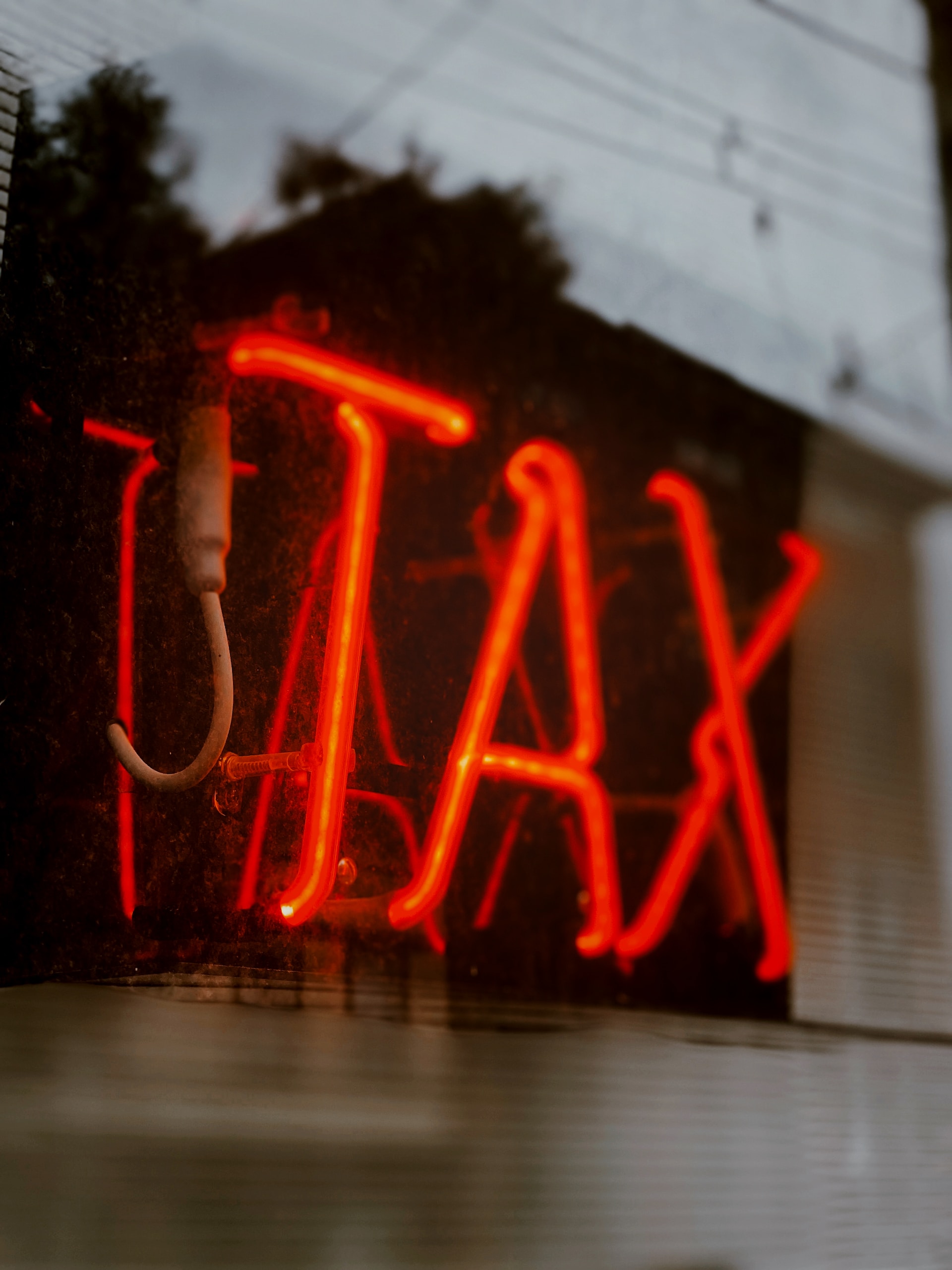Featured
January 1, Dems Unleash ‘Billionaires Tax’ Assault on Unrealized Capital Gains
Sen. Ron Wyden (D-OR) and other Democrats introduced a proposal on that would tax the unrealized capital gains of billionaires and very high earners.
Wyden has spearheaded an effort to make a mark-to-market proposal law for years, and the new legislation is the latest iteration of that effort. The plan would affect those with net worths of over $1 billion. It would also apply to high earners who made more than $100 million in three consecutive years.
If it were to become law, the plan would be a massive departure from how the United States handles federal tax policy, as it would apply levies on the unrealized gains of assets such as stocks and bonds for the wealthiest people.
The bill targets legal investment and spending strategies that billionaires use to shield themselves from tax liability. Wyden’s office said the legislation goes after a strategy dubbed “buy, borrow, die.”
“America’s tax code is riddled with loopholes that allow the ultra-wealthy to get away without paying their fair share while working families have to play by a different set of rules and pay taxes out of each paycheck,” Wyden said.
“You can only have a successful economy if you have a tax code that treats everyone fairly,” he added. “My billionaires income tax will make that a reality by ensuring those at the very top start paying their fair share, just like the rest of us.”
Co-sponsors of the legislation include several senators on the Left: Sens. Elizabeth Warren (D-MA), Bernie Sanders (I-VT), John Fetterman (D-PA), and Jeff Merkley (D-MA).
The legislation would permit billionaire shareholders to choose up to $1 billion in stock of a single corporation to hold as a nontradeable asset to retain a controlling interest in that company.
The intent is to prevent billionaire founders of companies from selling off huge chunks of their shares to foot their new tax bills.
Because the assets of some of these billionaires, particularly those with much of their wealth tied up in stocks, have appreciated by enormous amounts over the years, there would be a big initial tax bill. The Wyden bill allows them up to five years to pay off that first levy.
Wyden and the 15 other co-sponsors argue the legislation would help shore up funding for programs such as Social Security and Medicare, which are facing massive problems with sustainability and fiscal stability in the coming years. They have also emphasized that the change in tax code would affect a very small number of people, roughly 700 wealthy taxpayers in the U.S.
But critics say soaking the ultra-wealthy could hurt capital markets by dissuading people from offering stocks or buying them. When the idea was first floated in 2021, Curtis Dubay, the senior economist for the Chamber of Commerce, argued it could add to the decline of companies going public through initial public offerings.
Dubay contended that the dwindling number of IPOs would, in turn, negatively affect middle-class investors, who are unsophisticated and uncertified, meaning they can’t take advantage of the same opportunities that certified investors can.
The legislation also has no chance of passing in Congress because Republicans hold a majority in the House and would undoubtedly bat it down — plus, some centrist Democrats in the Senate are unlikely to support the proposal.
The mark-to-market proposal was unveiled in 2021 as a possible funding mechanism for President Joe Biden’s “Build Back Better” plan, although it was never formally introduced as it was on Thursday. At the time, Sen. Joe Manchin (D-WV) said he had problems with the plan.
“I don’t like it,” Manchin said in 2021. “I don’t like the connotation that we’re targeting different people as people that — basically, they contributed to society and create a lot of jobs and a lot of money and give a lot to philanthropic pursuits.”
The fact that the legislation has been introduced shows there is still an appetite among some of the more liberal lawmakers to tax the unrealized capital gains of billionaires.
“For too long, billionaires have rigged the rules to cut their taxes to the bone, all while working families struggle to make ends meet,” Warren said. “We should be investing in American families, not letting billionaires off the hook — and the billionaires income tax takes an important step to make our tax system fairer.”
The Wyden legislation comes the same week that Reps. Don Beyer (D-VA) and Steve Cohen (D-TN) reintroduced a bill, backed by Biden, that would require households worth over $100 million to pay an annual minimum 25% tax rate on their full income, including that of realized and unrealized gains.
“A billionaire minimum tax of just 25% would raise $440 billion over the next 10 years,” Biden said in a Thursday social media post. “Imagine what we could do if we just made billionaires pay their taxes like everyone else.”
Why It Matters (op-ed)
The Democrats’ proposed billionaires tax is a blatant attack on the very individuals who create jobs and contribute to our nation’s growth. This misguided legislation, championed by the likes of Sen. Ron Wyden and Sen. Elizabeth Warren, only serves to punish success and stifle innovation.
The tax targets legitimate investment strategies used by billionaires, sending a clear message that the Democrats are willing to penalize wealth creation in the name of “fairness.” Such a policy could discourage investment, hurt capital markets, and ultimately harm middle-class investors.
Furthermore, the legislation is unlikely to pass, making it a futile attempt to pander to the far-left base. Instead of wasting time on divisive proposals, lawmakers should focus on fostering economic growth and promoting policies that benefit all Americans.
As our loyal readers, we encourage you to share your thoughts and opinions on this issue. Let your voice be heard and join the discussion below.

-

 Entertainment3 years ago
Entertainment3 years agoWhoopi Goldberg’s “Wildly Inappropriate” Commentary Forces “The View” into Unscheduled Commercial Break
-

 Entertainment2 years ago
Entertainment2 years ago‘He’s A Pr*ck And F*cking Hates Republicans’: Megyn Kelly Goes Off on Don Lemon
-

 Featured3 years ago
Featured3 years agoUS Advises Citizens to Leave This Country ASAP
-

 Featured2 years ago
Featured2 years agoBenghazi Hero: Hillary Clinton is “One of the Most Disgusting Humans on Earth”
-

 Entertainment2 years ago
Entertainment2 years agoComedy Mourns Legend Richard Lewis: A Heartfelt Farewell
-

 Latest News2 years ago
Latest News2 years agoNude Woman Wields Spiked Club in Daylight Venice Beach Brawl
-

 Featured3 years ago
Featured3 years agoFox News Calls Security on Donald Trump Jr. at GOP Debate [Video]
-

 Latest News2 years ago
Latest News2 years agoSupreme Court Gift: Trump’s Trial Delayed, Election Interference Allegations Linger

Cap'n Obvious
December 2, 2023 at 8:31 pm
Hilarious to the degree of disgusting. How many UNEMPLOYED are given handouts provided by MY tax dollars and that’s just peachy. But the billionaires who provide jobs for 10s of thousands if not 100s of thousands, even millions are ‘the bad guy’ when it comes to not paying taxes. Who is going to foot the bill for the taxes they’ll pay if/when loopholes are closed? That’s right Johnny! The employed NON millionaire/billionaires like myself! How? When the billionaires raise the prices of the products and services they provide!
John Paine
December 4, 2023 at 7:17 pm
The way the law needs to be changed is to DEEM AS TAXABLE INCOME any money BORROWED against assets. If the borrowed money were to be repaid later, the ASSETS would acquire a NEW HIGHER COST BASIS. I am not in favor of a wealth tax as such, since wealth is too easily concealed, and extremely difficult to APPRAISE FAIRLY. Also, not in favor of taxing unrealized capital gains, because the government is unlikely to be willing to offer refunds in case the asset decreases in value after being taxed.
Devine
December 4, 2023 at 7:22 pm
Hey Congress, start by fixing the tax codes, you created the loopholes that are being taken advantage of. But none of you have the guts.
Rat Wrangler
December 4, 2023 at 9:04 pm
Rather than taxing millionaires on money they do not yet have, why not tax all of their income at 37%, rather than just their salaries? Some pay the 37% on their paycheck, but then only pay 15%-20% on the millions they bring in as dividends and other non-salary sources? It would save a lot of paperwork, and bring a lot more money into the government coffers. Congress would not be immune to this tax, by the way.
Linda Sykes
December 5, 2023 at 4:26 pm
I don’t think making multi-millionaires and billionaires pay their fair share of taxes is going to hurt them at all for the simple reason that the majority of them are owners of corporations or CEO’s of millionaire businesses and they would just raise the prices or costs of their products/services. So, once again, the middle-income consumer pays. Plus there are so many loopholes that they would find other ways to hide their income. Looks like Swiss Banks will do a booming business if this goes through. But we all know it won’t since the Republican’ts control the House. Why the Democrats would even introduce it when they know it has no chance of passing, amazes me. The whole tax system needs to be revised!
Taxpayer
December 5, 2023 at 5:17 pm
I think a straight one with no deductibles or loopholes period would be the fairest. It wouldn’t matter how much money you made. Everyone would pay the same % of tax. That would element hundreds if not thousands of the IRSs freeloaders employed by our government.
Bob19116
December 16, 2023 at 1:46 pm
The existing tax system created by both Democrats and Republicans only recognizes taxable income when the asset is sold at a price above the purchase price. So, if you hold a stock or real estate or artwork or other collectibles there is no income tax due until the asset is sold at a profit. The increase value is never taxed if you die because laws say an asset tax basis is increased to the value on the day the old owner dies so all the gain in value is never taxed. That loophole should be fixed without forcing a family to sell the farm when the owner dies to pay taxes on the increased value of the farmland over decades. A tax on increased value of retained assets is a big mess. Who determines the value on all of a billionaire’s art work, collectibles, precious metals/ diamonds and real estate and other assets that are not prices at regular intervals?
gman4691
February 10, 2024 at 12:36 pm
Wouldn’t a flat tax be simpler?